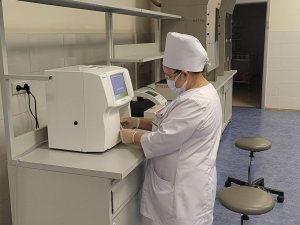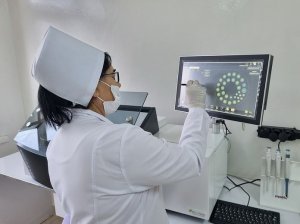The doctor of the Diagnostic Center of the Ministry of Health and Medical Industry of Turkmenistan, Miwe Niyazdurdiyeva, explained the benefits of regular diagnostic examinations on the pages of the “Neutral Turkmenistan” newspaper.
- A number of diagnostic examinations should be carried out annually for preventive purposes. This makes it possible to detect deviations from the norm in time and avoid many problems. The examination can be done at any medical institution in the country. In order to be examined in medical centers, you need a passport, a medical policy and a referral from a doctor.
In diagnostic medical centers, you can undergo hardware and laboratory diagnostics. Among such clinics, there are consultative-diagnostic and treatment-diagnostic clinics. This means that they can not only be examined and receive a conclusion, but also consult a doctor regarding the diagnosis or be observed by a specialist.
The country's diagnostic centers use the latest techniques, examinations are carried out on highly sensitive equipment, and the conclusions are given by experienced doctors with specialized qualifications. Here you can do computed tomography, magnetic resonance imaging, ultrasound, x-rays, fluorography, mammography. Devices for this kind of diagnostics give a complete picture of the state of the organs under study.
Prevention of diseases is, first of all, the responsibility of the person himself for his own health and the health of others. Therefore, along with regular examinations in medical institutions, it is important to observe the rules of personal hygiene, which is an integral part of a large disease prevention system. Wash your hands often with soap and water, including washing your hands after returning from the street, contact with other people (if you cannot wash your hands with soap and water, use alcohol-containing or disinfectant wipes). Avoid touching your nose, mouth, eyes with unwashed hands.
Limit close hugs and handshakes when greeting.
Use an individual medical mask for respiratory protection in case of possible contact with people (in transport and public places, in contact with strangers, when caring for a patient). The mask should be carefully fixed, tightly close the mouth and nose, leaving no gaps. When removing, do not touch its surfaces, wash your hands thoroughly with soap or alcohol. Do not reuse a used disposable mask.
Follow a healthy lifestyle that includes adequate sleep, a balanced diet of foods rich in proteins, vitamins and minerals, and physical activity.













